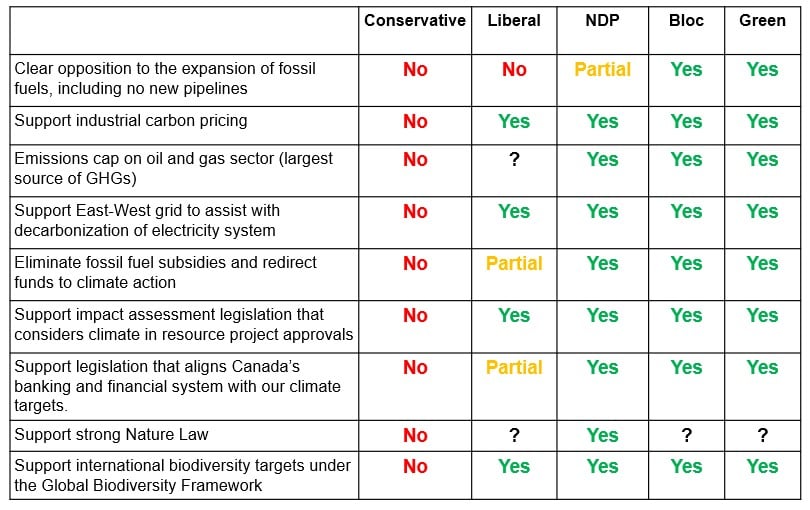Baku, Azerbaijan – A small tax on just seven of the world’s biggest oil and gas companies could grow the UN Fund for Responding to Loss and Damage by more than 2000% and help address the costs of extreme weather events, according to new analysis published today by Greenpeace International and Stamp Out Poverty. The organisations are calling for a long term tax on fossil fuel extraction, with year-on-year increases, combined with taxes on excess profits and other levies.[1][2]
- Taxing ExxonMobil’s 2023 extraction could pay for half the cost of Hurricane Beryl
- Taxing Shell’s 2023 extraction could cover much of Typhoon Carina’s damages
- Taxing TotalEnergies’ 2023 extraction could cover over 30 times Kenya’s 2024 floods
“While oil and gas giants keep raking in grotesque levels of profit from exploiting resources, the damages resulting from the industry’s operations are disproportionately borne by people who did not cause the crisis,” said David Hillman, Director of Stamp Out Poverty. “A climate damages tax – along with other levies on fossil fuels and high-emitting sectors – will make polluters pay for the cost of climate impacts, as well as supporting workers and affected communities in the transition to clean energy, jobs, and transport.”
The organisations highlight the financial costs of some of this year’s worst weather events that have been attributed to climate change. These include Hurricane Beryl, Hurricane Helene, the heatwaves in India in May, Typhoon Carina/Gaemi, the floods in Brazil in May, and the floods in Kenya and Tanzania in April.[4] The analysis finds these extreme weather events alone cost a total of US$64.6bn, ranging from US$2.9bn (Typhoon Carina) to US$ 25bn (heatwaves in India).
These costs, which are just a fraction of the total damage caused by extreme weather globally, illustrate the scale of harm done by dirty energy companies. The analysis also shows the potential to raise revenue through imposing a Climate Damages Tax (CDT) starting in the first year at US$5 per tonne of CO₂-equivalent emitted by the oil and gas the companies extract.[4] Together, the seven oil and gas companies featured in the report – ExxonMobil, Shell, Chevron, TotalEnergies, BP, Equinor and ENI – earned almost US$150 billion last year.
Increasing the CDT tax rate by US$5 per tonne per year plus inflation would generate hundreds of billions of dollars by the end of the decade, the analysis shows.
A Climate Damages Tax imposed across wealthy OECD countries could play an essential role in financing climate action. Increasing annually by US$5 per tonne of CO2-equivalent based on the volumes of oil and gas extracted, the tax could raise an estimated US$900 billion by 2030 to support governments and communities around the world as they face growing climate impacts – particularly the poorest and most vulnerable.[5]
“Who should pay? This is fundamentally an issue of climate justice and it is time to shift the financial burden for the climate crisis from its victims to the polluters behind it,” said Abdoulaye Diallo, Co-Head of Greenpeace International’s Stop Drilling Start Paying campaign. “Our analysis lays bare the scale of the challenge posed by climate loss and damage and the urgent need for innovative solutions to raise the funds to meet it. We call on governments worldwide to adopt the Climate Damages Tax and other mechanisms to extract revenue from the oil and gas industry.”
The call to make climate polluters pay comes at the conclusion of two weeks of protests that delivered to offices of TotalEnergies, Eni, Equinor and OMV containers of broken toys, furniture, appliances, and other remnants of personal and communal tragedy, shipped from flood- and storm-affected areas around the world by the Greenpeace network. Protests by Greenpeace groups and survivors of extreme weather took place in Austria, Belgium, France, Italy, Norway, the Philippines, Romania, South Africa, and Spain.
ENDS
Photos and videos of the weather events featured in the analysis are available from the Greenpeace Media Library.
Notes:
[1] The Loss and Damage Fund was announced at COP27 in Egypt to help developing countries compensate for impacts of natural disasters caused by climate change. Recently renamed the Fund for Responding to Loss and Damage (FRLD), it currently has US$702 million in pledged funds. According to Greenpeace International and Stamp Out Poverty’s calculations, a Climate Damages Tax levied on seven major international oil and gas companies would add in the first year alone US$15.02 billion, corresponding to over 21 times what is currently pledged to the fund.
[3] The estimated Climate Damages Tax payable by the seven largest oil and gas companies based on 2023 emissions data is as follows:
| Oil & gas company | 2023 adjusted earnings(in US$ billions) | Total estimated 2023 Scope 1-3 emissions (Mt CO2e) | Estimated Climate Damages Tax payable on 2023 emissions at US$5 per tonne CO2e (in US$ billions) |
|---|---|---|---|
| ExxonMobil | 38.6 | 637.57 | 3.19 |
| Shell | 28.3 | 460.17 | 2.30 |
| Chevron | 24.7 | 507.24 | 2.54 |
| TotalEnergies | 23.2 | 411.92 | 2.06 |
| BP | 13.8 | 375.30 | 1.88 |
| Equinor | 10.4 | 343.31 | 1.72 |
| ENI | 9.2 | 267.74 | 1.34 |
| Totals | 148.20 | 3,003.24 | 15.02 |
[4] Hurricane Helene | WWA; Typhoon Gaemi | WWA; Brazil floods | WWA; India’s heatwave | WWA; Kenya floods | WWA; Hurricane Beryl | Climate Central
[5] A Climate Damages Tax is a fossil fuel extraction charge applied to the carbon dioxide equivalent (CO2-equivalent) emissions of each tonne of coal, barrel of oil or cubic metre of gas produced. The proposal, supported by over 100 environmental NGOs, advocates taxing – at an annually increasing rate – fossil fuel giants that have been central to driving the climate crisis, including ExxonMobil, Shell, TotalEnergies, BP, Chevron, Equinor, and Eni, whose 2023 earnings totalled US$148.2 billion.
[6] The Climate Damages Tax: A guide to what it is and how it works, Stamp Out Poverty, 2024, p. 7.
Contacts:
Laura Bergamo, Communications Campaigner, Greenpeace Canada [email protected]; +1 438 928-5237
Tal Harris, Global Media Lead – Stop Drilling Start Paying campaign, Greenpeace International, +41-782530550, [email protected]
Greenpeace International Press Desk, +31 (0) 20 718 2470 (available 24 hours), [email protected]
Follow @greenpeacepress on X/Twitter for our latest international press releases



